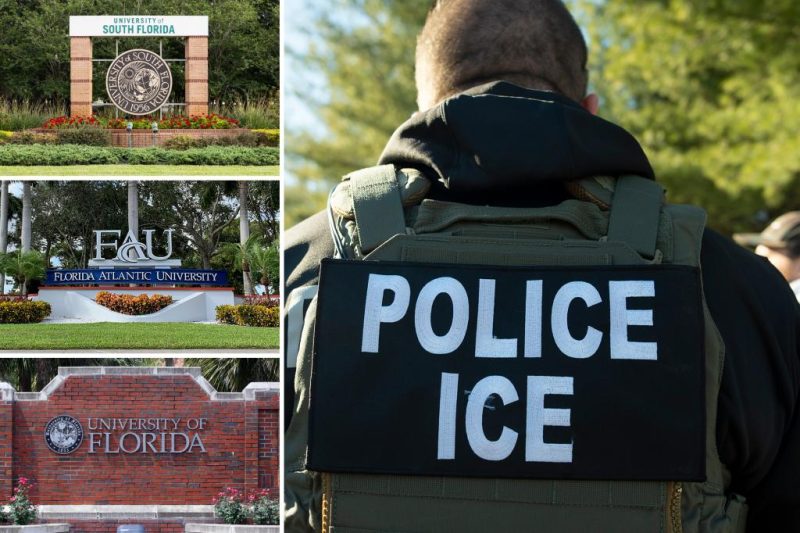
At least three public universities in Florida are reportedly exploring a controversial partnership with the federal government. This collaboration would involve deputizing campus police officers, granting them the authority to enforce immigration laws. This move comes amidst President Trump’s intensified crackdown on immigration, which has recently seen the revocation of student visas for various offenses, ranging from minor traffic violations to more serious accusations.
The proposed initiative aligns with Florida Governor Ron DeSantis’s support of the Trump administration’s immigration policies. His directive to state law enforcement agencies to actively assist in federal immigration enforcement is the stated rationale behind the universities’ actions. Florida Atlantic University, the University of Florida, and the University of South Florida are among those reportedly seeking to deputize their campus police forces. A spokesperson for Florida Atlantic University stated they are simply following the Governor’s February 19th directive.
The universities are considering participation in ICE’s 287(g) program, which allows federal immigration officials to delegate certain enforcement powers to state and local law enforcement. This program offers several models, including a task force model that would allow officers to question individuals about their immigration status and make warrantless arrests in specific situations. Other models focus on processing removable aliens within the jail system or executing administrative warrants. As of early April, no universities nationwide had officially joined the 287(g) program.
This decision by Florida universities has sparked considerable debate. Critics argue it could create a climate of fear and distrust on campuses, potentially discouraging international students from seeking help from campus authorities. Proponents, on the other hand, maintain that it’s a necessary step to ensure compliance with federal law and bolster national security. The long-term impact of this move on campus diversity and the overall student experience remains to be seen, as the program is still under consideration. The potential implications for the relationship between universities and their student bodies are significant and will likely continue to fuel the ongoing discussion.










